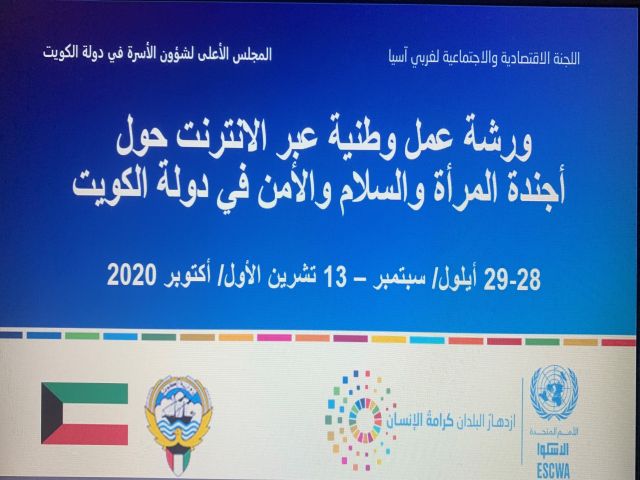In their engagement with the Women, Security and Peace (WPS) Agenda and UN Security Council Resolution 1325 (2000), countries adopt a set of measures that support women to play a key role in reinforcing the foundation and sustainability of peace and social cohesion, and to equally and fully participate in conflict-prevention and resolution efforts. In this context, 86 member States have adopted national action plans (NAPs) on WPS, as of August 2020, including seven Arab countries (Iraq, Jordan, Lebanon, Palestine, Sudan, Tunisia, and Yemen), and more countries have expressed interest therein.
The United Nations Economic and Social Commission for Western Asia (ESCWA) supports member States' efforts in implementing and monitoring the implementation of the Women Peace and Security Agenda by building the capacities of their national women's mechanisms as well as civil society, facilitating the exchange of expertise and successful experiences therein, and continuing to raise the awareness of policymakers about international frameworks and mechanisms.
In this context, as part of the State of Kuwait's national efforts to engage with the WPS Agenda, and in cooperation with the Supreme Council for Family Affairs, ESCWA organized a Webinar Series on the Women, Peace and Security Agenda in the State of Kuwait via Microsoft Teams on 28-29 September and 13 October 2020.
The webinars introduced the WPS Agenda and its interlinkages with various international frameworks related to women's human rights and sustainable development, as well as the options available to countries to engage with the Agenda. The webinars also helped facilitate discussion and consultations at the national level on priorities related to the implementation of the Agenda. Relevant international and regional experiences will be shared with focus on how these priorities have been examined within their various national policies and programmes.
The webinars brought together about 50 participants representing various governmental and non-governmental stakeholders as well as academics concerned with sustainable development, women, human rights, and security and peace issues in Kuwait.
28 September-13 October 2020
Seminar
Webinar Series on the Women, Peace and Security Agenda in the State of Kuwait
Initiatives: Women, peace and security
